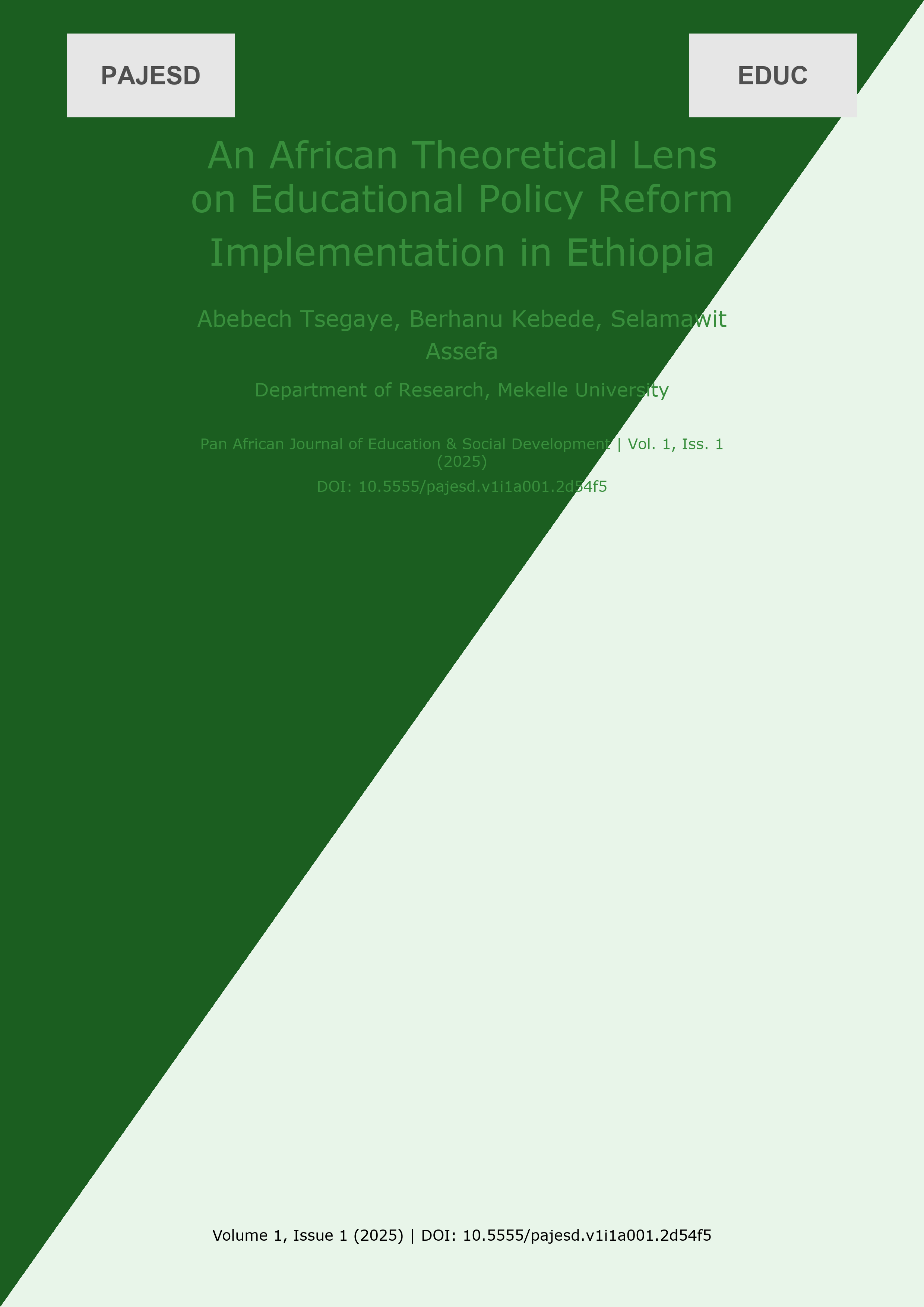An African Theoretical Lens on Educational Policy Reform Implementation in Ethiopia
Keywords:
African Epistemologies, Educational Policy Implementation, Ethiopia, Critical Theory, Indigenous Knowledge Systems, Development EducationAbstract
This theoretical framework article addresses the persistent challenges in effectively implementing educational policy reforms within the Ethiopian context, a recurring issue hindering the nation's developmental aspirations. Existing global implementation frameworks often fail to adequately capture the socio-cultural nuances, historical legacies, and indigenous knowledge systems that profoundly influence educational processes in Africa. This research aims to develop an African-centric theoretical lens, drawing inspiration from Ubuntu philosophy and indigenous African pedagogical principles, to better understand and guide educational policy reform implementation in Ethiopia. The methodology involves a critical review of existing literature on policy implementation, juxtaposed with an examination of African philosophical concepts and their potential application to educational settings. Key arguments posit that a successful implementation strategy must acknowledge and integrate communal responsibility, respect for elders and traditional authorities, and the inherent interconnectedness of learning with community well-being. The significance lies in offering a more culturally resonant and contextually relevant framework that moves beyond technocratic approaches. Implications suggest that by embracing an African theoretical perspective, Ethiopia can foster more sustainable and equitable educational advancements, ultimately contributing to holistic societal development.

Downloads
Published
Versions
- 2025-10-12 (2)
- 2024-01-15 (1)
Issue
Section
License
Copyright (c) 2025 PAJESD

This work is licensed under a Creative Commons Attribution 4.0 International License.
